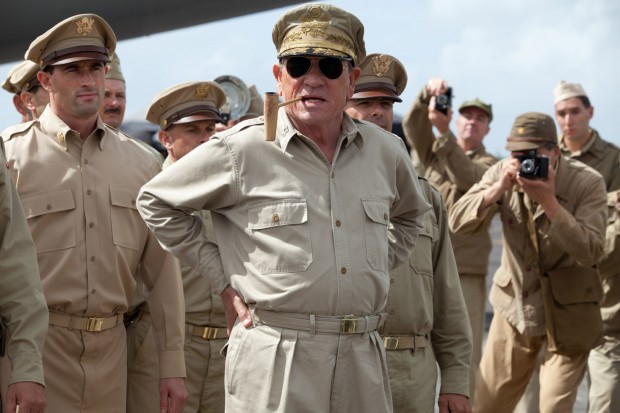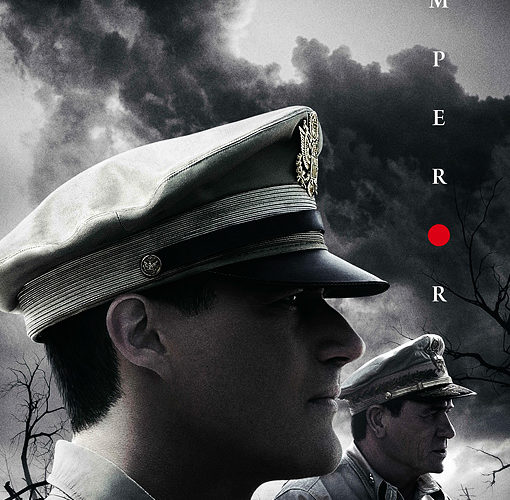Handsomely lensed and well acted, Emperor, from director Peter Webber (Girl with the Pearl Earring), embraces classical Hollywood sensibilities, almost to the point of achieving a certain dryness that artificial constructs by filmmakers like Michael Mann have been rebelling against (consider Public Enemies). With minimal slickness, Emperor features Matthew Fox as General Bonner Fellers, a Japan expert haunted by a past love affair he had while at college with a foreign exchange student Aya (Eriko Hatsune). Reporting to General Douglas MacArthur (Tommy Lee Jones), he’s been assigned to examine options following the Japanese surrender, including bringing General Tojo to trial. Diplomacy wins out in a film that attempts to go behind the scenes ending in the famed photograph of the meeting between MacArthur and Emperor Hirohito. Known as “Operation Blacklist,” the Emperor was ultimately exonerated so that, as the end credits inform us, a new decade in US-Japan friendship could begin.

The path towards this revelation doesn’t make for an inside baseball-style portrait such as in Spielberg’s Lincoln, but rather a classic detective story. The elements (the love story, the war, the strategy for rebuilding) are woven together rather simply, as if to suggest only a mild political allegory that feels 10 years too late. Cooler heads prevailed here, however I’m not sure current allegory is the intention of this film. In fact despite only a subtle pro-America agenda on display (far from a conservative style of film), it makes the case for diplomacy without avert politicization. Simply stated it is what it is: a handsomely crafted period film.
The film is decidedly one-sided in its attempt to demystify the Emperor – not unlike Citizen Kane, this film is structured as an investigation. Fox is effective as Fellers, while Jones does what he does best as MacArthur, playing a tough, no-nonsense SOB. The weakest link in the investigation is the love story. It provides too thin a MacGuffin for us, without the texture required to really be effective. There is a right balance that isn’t quite met – somewhere between Nicholas Sparks and Atom Egoyan.
The film’s point of view is worth noting, as several years ago Clint Eastwood did the unthinkable and made a WW II film from two perspectives: Flags of Our Fathers and Letters from Iwo Jima; I wish Webber could have done the same. Enough time has passed on WWII where two films from varying perspectives can be made (one from Ava’s perspective would be welcome, as she is too thinly developed for how critical she is). Our present wars and conflicts are all too easily experienced on both sides thanks to digital media — so much so, perhaps allegory is unnecessary.
Emperor is currently playing in limited release.

